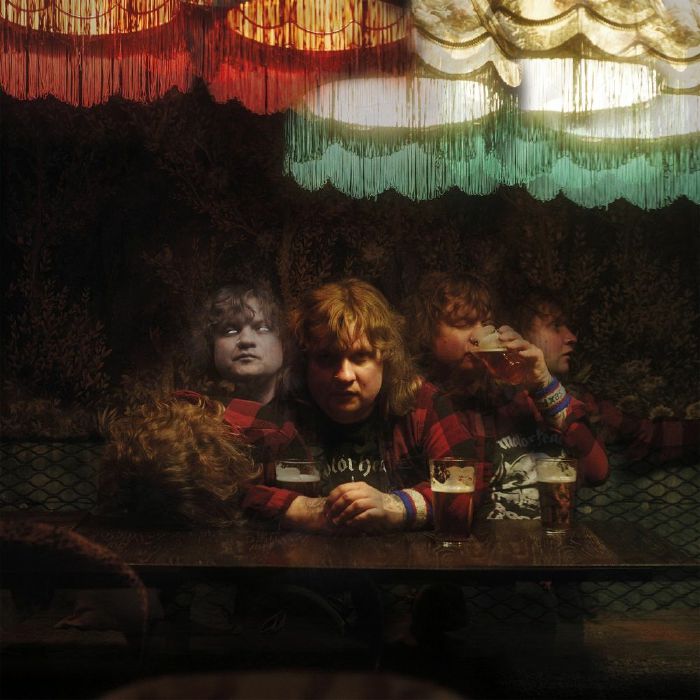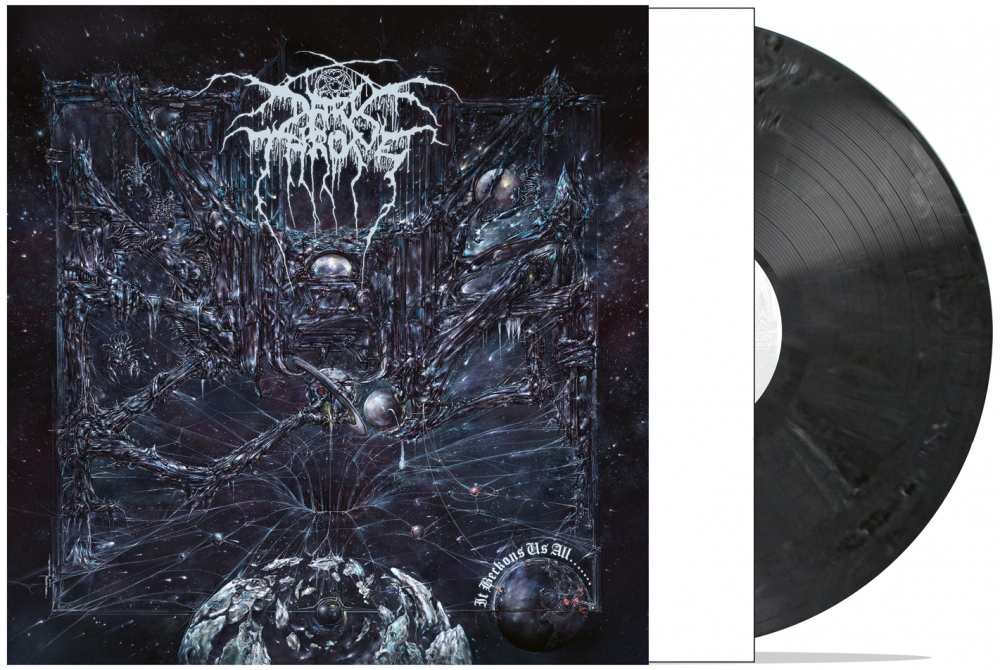The first full-length offering from Ebonillumini, following an two immensely impressive EPs, ‘Pacificum’ is a ten track exploration of black metal’s most experimental regions, drawing upon numerous influences from Pink Floyd to Ulver and from Miles Davis to Darkthrone. It is not an easy album, to be sure. From the widely diverse genres employed to construct the epic-length songs, to the unforgiving production, the album requires effort, but persevere and you’ll find that effort repaid many times over. A conceptual piece charting a dark voyage across the Atlantic, with each track representing a stop along the way, it is an ambitious and powerful album that worms its way into your consciousness and lodges there, always drawing you back for one more listen.
The album opens with the strikingly apt ‘Darwin’s glacier (Antarctica)’ which incorporates glacial riffs with wide ranging vocals and progressive guitar leads to grand effect. It sets the tone for the album and places Ebonillumini firmly in the experimental, oft-melodic realms of Blut Aus Nord and Ulver, a notion given further weight by the intriguing ‘Tane Mahuta (New Zealand)’ with its echoing guitar work and subtle shifts only giving way to a barrage of black metal aggression after drawing you into its complex web of jazz-infused time signatures and exotic melodies. The only band that comes close to this level of fevered invention is Australia’s Alchemist who indulge in a similarly inventive approach to music making. The first track to truly rage in traditional black metal style, ‘Einstein’s Atom (Japan)’ is a furious melee of riffs and frozen howls, but even here the music is not so straightforward, and the percussion frequently takes off on wild excursions into the world of jazz. The dual vocals of The Monk (J.D. Tait) and The Maiden (Christina Poupoutsi) work wonders here, veering between eclectic, Jarboe-esque flights of fantasy and acid-edged gargles of serrated rage whilst The Mantodea (Andre Thungs) lays down a powerful backdrop of thunderous percussion. Ending in a nerve-fraying welter of synth noise, the track gives way to ‘Breadfruit caller (Micronesia/Satawal)’, a sultry mood piece that has more in common with the salacious music found in the red-velvet-clad lounges of the fifties than black metal’s dark bluster. It highlights the inventive nature of the album and the fact that Ebonillumini are not content to be categorised by genre, preferring to let the ambitious and intelligent concept do the talking.
‘Great Nova (Tonga)’ sees the journey take a sinister turn on its route towards the Americas, drawing upon the mysterious sound of (Neurot artists) Bee and Flower to produce a sound that can only be described as blackened indie. Like an uncharted island arising out of the mist, so ‘Great Nova’ can only be seen in glimpses as the hypnotic rhythms draw the listener ever closer to the raging heart of the track. ‘The Ebon Channel (The Marshall Islands)’ rapidly devolves into a ferocious mix of harmony vocals and raging guitars that sit somewhere between Jex Thoth and Madder Mortem, the music providing a heavy backdrop for The Maiden’s increasingly beguiling vocals.
At the heart of the album lies the massive ‘Nuclear Nomads (French Polynesia)’ a rich, near-progressive tapestry of gorgeous instrumental work and The Maiden’s bewitching vocals. A work of substance and scope it stands tall in the company of Blut Aus Nord, Ulver and Opeth, with all of whom it shares similarities without actually sounding like any of them. At almost ten minutes it should feel long, and yet thanks to the endless musical invention of the band it flickers past in an instant and leaves us washed up at the doors of ‘The White Sisters Of Charity (Papua New Guinae)’ which opens amidst ambient guitar work and a rich aural tapestry of snatched radio voices which is part Pink Floyd, part Queensryche in execution. It stretches the boundaries of black metal acceptability in a way that few bands outside Ulver have satisfactorily achieved. ‘Mariana trench (Hadal Zone)’ sees the journey drawing to its conclusion, in a haze of uncertainty and found sounds. The music here is at its least coherent and most inventive, the band cleverly building a mental image of their journey via a series of seemingly disparate musical elements before one final black metal explosion draws us to the final track. The album concludes, as does the voyage, in ‘Kukulkan (Mexico)’, the guitars ripping gently against the shore of this long hoped for new world. Mysterious and exotic it conjures up the same feelings of awe, intrigue and wonder as must have been felt by those ancient explorers and it leaves the listener feeling as if they’ve undertaken the journey alongside the band.
Concept albums are a risky proposition for any band. Crafting a concept itself may seem easy, but to develop the music, lyrics and atmosphere to allow the concept to run coherently through the album is difficult indeed and something that few bands have done with any success. In ‘Pacificum’, Ebonillumini have both a grand concept and the music to match and the album truly succeeds in taking the listener upon a voyage of the imagination. Each track is awash with ambient touches – the sound of water, the chanting of natives, echoing, glacial guitars and ferocious percussion – and the album as a whole draws the listener out of themselves and into an exotic, uncharted world that proves to be both lush and dangerous. For those who love their black metal to be progressive, expansive and dangerous, ‘Pacificum’ is an essential addition to their collection.











Leave a Reply